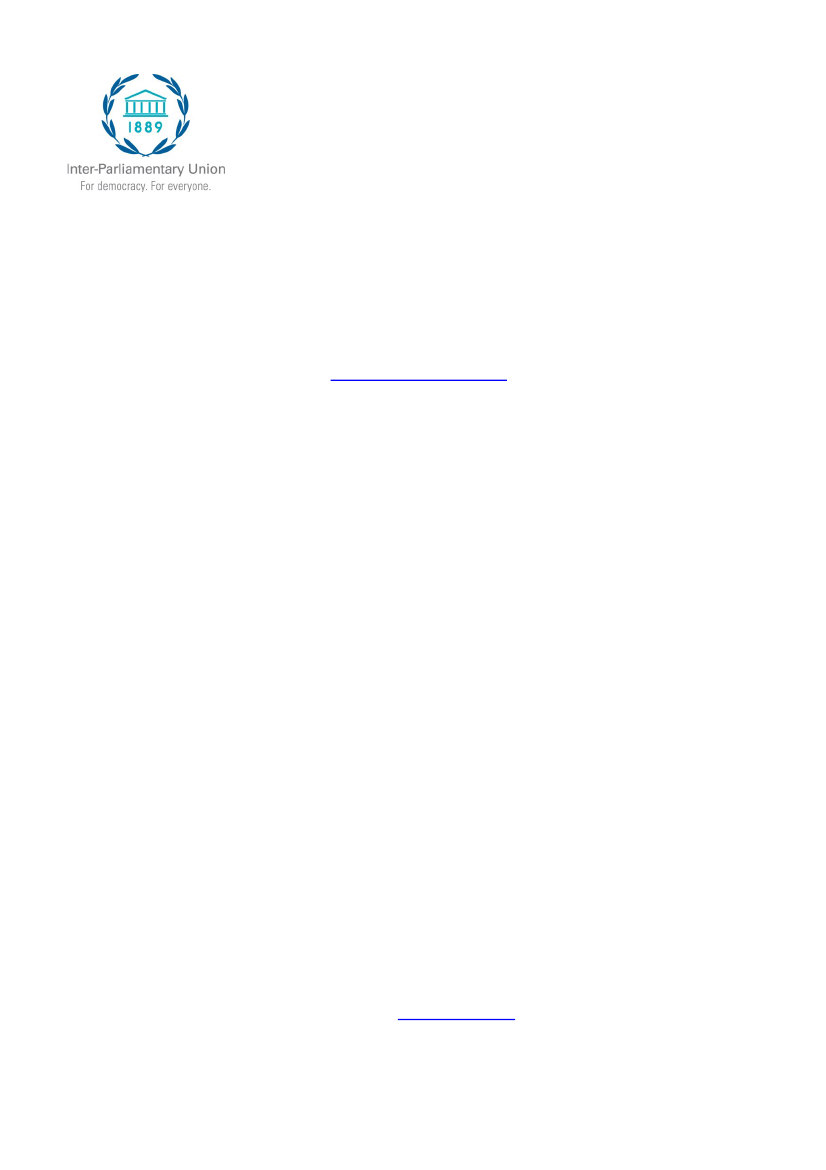
News Release
Women MPs: Some progress but prominent figures quitting
Geneva, Switzerland, Tuesday 5 March 2024. For immediate release.
According to the IPU’s latest
Women in Parliament 2023
report, the global proportion of MPs who
are women has inched up to 26.9%, based on elections and appointments that took place in
2023.
This represents an increase of 0.4 percentage points year on year, a similar growth rate to 2022.
However, the growth is slower than in the preceding years
–
elections in 2021 and 2020 saw an
increase of women MPs of 0.6 percentage points.
Gender issues dominated many of the elections amid a backlash against women’s rights in some
countries. The report also points out that several prominent women have recently left politics,
blaming burnout and threats.
The IPU report is based on parliamentary renewals in 66 chambers in 52 countries in 2023.
Women made up 27.6% of MPs in those newly elected or appointed chambers, an overall
increase of 1.4 percentage points compared with previous polls in the same countries.
Bright spots
There was notable progress in some areas, for example:
•
In the Americas, women accounted for 42.5% of all MPs elected or appointed in chambers
that were renewed in 2023, the highest regional percentage. The region thus maintains
its long-held position as the region with the highest representation of women in the world,
at 35.1%.
Globally, the share of women Speakers of parliament increased to 23.8% (up 1.1
percentage points).
Cambodia and Côte d’Ivoire
elected women Speakers for the first
time.
Well-designed and implemented quotas continue to be a significant factor in increasing
women’s representation. The 43 chambers that had some form of quotas elected 28.8%
women MPs on average, versus 23.2% in countries without.
Sub-Saharan Africa recorded the highest improvement among all regions with an
increase of 3.9 percentage points in 2023 elections compared to previous ballots in the
same countries. The biggest gains were in Benin, Eswatini and Sierra Leone, enabled by
quotas.
Rwanda continues to lead the
IPU world ranking
with women accounting for 61.3% of
seats in the Chamber of Deputies, followed by Cuba and Nicaragua with 55.7% and
53.9% respectively, while Andorra, Mexico and the United Arab Emirates have parity.
•
•
•
•